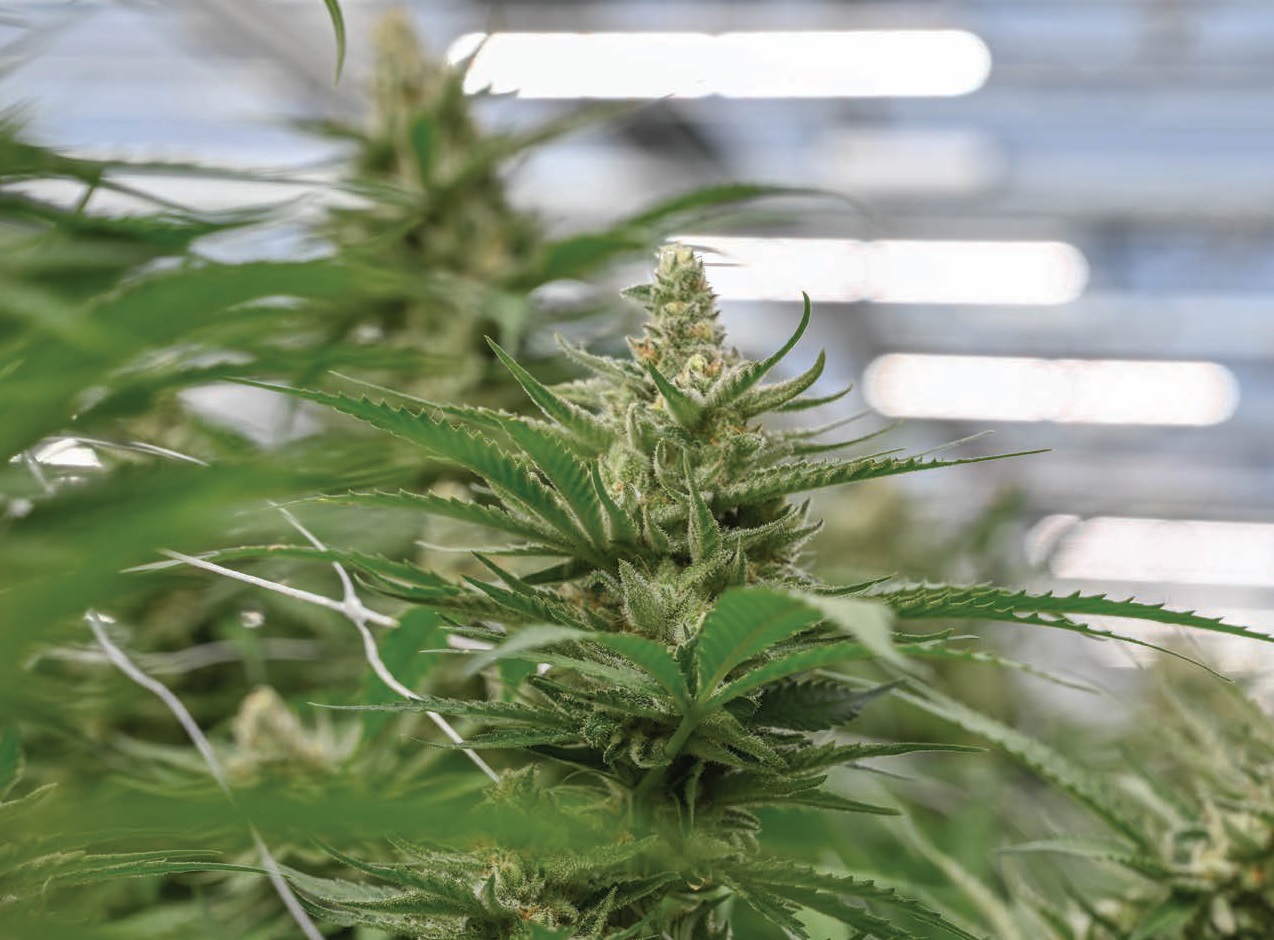Utilities, Policy Advisors, Testing Labs and Energy Engineers Invited to a Dialogue on Emerging Indoor Agriculture Technologies
BOSTON (October 12, 2020)–Resource Innovation Institute (RII), in partnership with the DesignLights Consortium (DLC) and the American Society for Agricultural and Biological Engineers (ASABE), will host a workshop on Thursday, Oct. 29, titled “State-of-the-Market: Liquid-Cooled Horticultural LED Lighting.”
Liquid-cooled horticultural LED lighting represents new opportunities for energy savings and system flexibility. This interactive webinar will address how utilities and the controlled environment agriculture (CEA) industry are evolving alongside this emerging technology.
Controlled environment agriculture requires lots of energy. Thermal optimization of cultivation spaces requires managing interactive lighting and heating, ventilation, air conditioning, and dehumidification (HVACD) loads.
Efficient horticultural LED lighting technologies prevalent in today’s market are generally air-cooled. However, there is an emerging category of liquid-cooled systems that enhance energy performance by transferring heat from lighting systems in growing areas to central HVACD systems to store and reuse for other processes.
The DesignLights Consortium (DLC) and American Society for Agricultural and Biological Engineers (ASABE) are working to develop pathways for liquid-cooled technologies to be accurately and consistently measured, independent of testing laboratory, thereby enabling them to ultimately be evaluated for energy savings potential and featured on the DLC’s Qualified Products List (QPL).
Meanwhile, liquid-cooled lighting systems are not commonly supported by efficiency programs and require custom approaches to assessing energy savings. Cultivators interested in liquid-cooled LED systems struggle in many markets to receive incentives, despite their energy savings potential.
Utilities and energy efficiency programs can benefit from understanding emerging liquid-cooled technologies and quantifying the energy benefits of these systems using consistent approaches to support a greater number of customers and claim larger savings.
Participants will learn about:
- Key concepts
- Market barriers
- Technical standards
- Utility approaches
Who should attend:
- Utility engineers and program implementers
- Energy code and policy advisors
- ASABE and DLC working group members
- Cultivation industry professionals
Agenda: Thursday, Oct. 29
1:00 – 2:30 p.m. ET: General webinar
Welcome, introductions & purpose
Hosted by Gretchen Schimelpfenig, Technical Director, Resource Innovation Institute
Agenda overview
Moderated by John Wilson, Lighting Design Lab, Seattle City Light
Brief overview of liquid-cooled technology
Manufacturer representatives from Agnetix, Oreon, and GS Thermal
The process and timeline for active-cooled technology incorporation into the DLC Qualified Products List (QPL)
Kasey Holland, DesignLights Consortium
Development of a replicable test method; Insights from testing labs
Carl Bloomfield, Intertek; ASABE ES-310 & S642 Chair
Insights on current utility incentive approaches
Bob Gunn, Seinergy
2:30 – 3 p.m. ET: Breakout sessions
- Data: Developing a collaborative open source data access plan to enable consistent and defensible custom incentive calculations
- Landscape: Identifying complementary policy and customer engagement approaches
- Technology: Deeper understanding of the technology
To schedule an interview or request press credentials, please contact Shawna Seldon McGregor at shawna@themaverickpr.com or 917-971-7852.
About Resource Innovation Institute: Advancing Resource Efficiency to Cultivate a Better Agricultural Future
Resource Innovation Institute (RII) is a non-profit organization whose mission is to advance resource efficiency to cultivate a better agricultural future. Founded in 2016 in Portland, OR, USA, RII’s Board of Directors includes the American Council for an Energy Efficient Economy (ACEEE), a former board member of the US Green Building Council and leading cannabis industry players. Its Cannabis PowerScore benchmarking platform represents the world’s largest dataset on cannabis energy use. RII’s Technical Advisory Council is the leading multi-disciplinary body assessing the environmental impacts and best practices associated with cultivation resource issues. RII’s Efficient Yields cultivation workshops are the only grower-led, non-commercial venues for the exchange of resource efficient cultivation best practices. RII is funded by utilities, foundations, governments and industry leaders. Visit our website at ResourceInnovation.org. Follow us on LinkedIn, Facebook, Twitter and Instagram.
# # #



